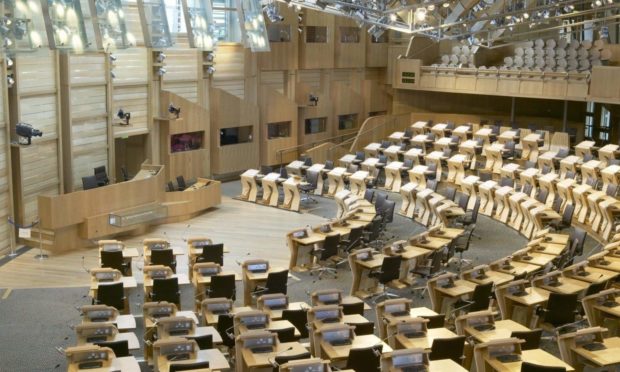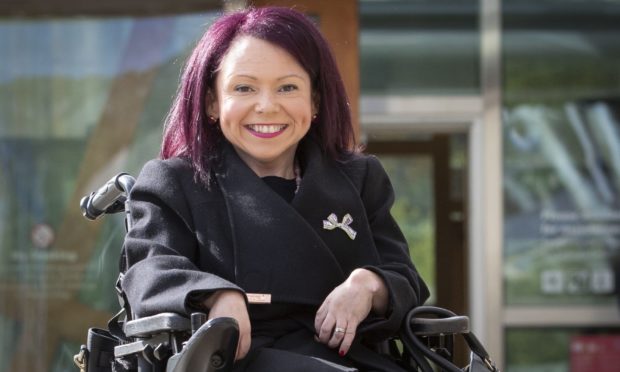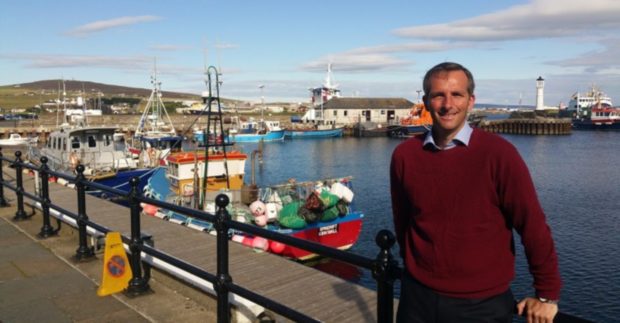The SNP’s national disabled members’ convener has backed opponents of a new proposed assisted dying law, vowing to fight any support from government colleagues “with every fibre of my being”.
Jamie Szymkowiak’s claim follows criticism from Holyrood’s first permanent wheelchair user, Pam Duncan-Glancy, along with opposition campaign groups.
The comments come as a renewed push for a change to the law in Scotland formally reached the Scottish Parliament, led by Orkney Lib Dem MSP Liam McArthur with cross-party supporters.
Mr Szymkowiak reacted after the plan was revealed, claiming: “Most of this afternoon has been spent planning. I’m going to fight Holyrood’s assisted suicide bill with every fibre of my being. The voices of disabled people in Scotland will be heard.”
Earlier, Labour MSP Duncan-Glancy warned: “I am deeply worried about this. Disabled people do not yet enjoy our right to live equally. I’d far rather we had a right to live enshrined in law, long before we have a right to die. Until all things are equal, this is dangerous for disabled people.”
‘Undignified death’
Mr McArthur said he thinks there is enough support to get a law passed at the third attempt in around just over a decade.
“Too many Scots are forced to endure a protracted, painful and undignified death, often despite the very best of palliative care, due to a blanket ban on assisted dying,” he said.
Previous proposals were rejected in free votes, not enforced along party lines, in 2010 and 2015.
As the latest Bill was introduced on June 21, Mr Szymkowiak asked questions about what considerations would be given to people from the rest of the UK moving to Scotland for a year of palliative care to qualify for the law.
Mr Szymkowiak, SNP branch convener in Dunoon, Argyll, raised concerns about progress in Canada. He claimed two amendments to the law in six years had widened eligibility with “safeguards being eroded”.
He wrote: “Holyrood’s focus should be on incorporating the UN Convention on the Rights of Persons with Disabilities into Scots law, establishing the National Care Service, halving the disability employment gap, building accessible transport and homes.
“Once disabled people have true equality – with proper independent living support – then we might have the ‘choice’ that many non-disabled people are, falsely, suggesting is currently available by introducing an assisted suicide bill during a global pandemic.”
What does the new Bill propose?
The provisions of the bill would require someone to have lived in Scotland for at least a year before they have the right to an assisted death. It aims to avoid the controversial issue of “assisted dying tourism” which has seen patients travel from countries where it is illegal to other destinations, such as Switzerland, where the laws are more liberal.
The first attempt at changing the law was led by Margo MacDonald, a veteran MSP with Parkinson’s disease who died in 2014. A second attempt, taken on by Greens co-convener Patrick Harvie, was rejected in 2015.
A new group of 12 MSPs, which includes former Scottish Conservative leader Jackson Carlaw, as well as Green co-leaders Patrick Harvie and Lorna Slater, argued Scotland needed to change its laws.
They stated: “The current law does not work and should be replaced with a safe and compassionate new law that gives dying people the rights they need to have a good death at a time that is right for them.”
The issue was raised during the Scottish Parliament election campaign. It had been publicised by Great British Bake Off judge Prue Leith, whose brother David died from cancer. She said the experience had been “monstrous” and asked MSPs to change the law in the next parliamentary session.
‘Give people a say’
The Dignity in Dying campaign now has 53,000 signed-up supporters, the group’s spokeswoman Ally Thomson said.
“It is a safe and compassionate proposal that would allow assisted dying for terminally ill, mentally competent adults only,” she said.
“The safeguards at the heart of the Bill put safety and transparency in place where none currently exist.
“The Bill co-exists with calls to further disability equality and the right to independent living. It shares the vision of a country where people have choice, control and autonomy over the decisions that affect their life and their death.
“We know that 88% of disabled people support a change in the law that would allow dying people who face suffering and pain at the end of their life the choice to say when they have had enough. As a country Scotland can advance the rights of its disabled citizens and make sure that its dying people do not have to suffer needlessly – it is not an either or situation.”


